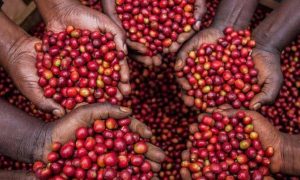
#OutToLunch: Group savings could help young people become homeowners
By Denis Jjuuko For most people, owning a home is the ultimate dream. It is a key component of what constitutes the American dream. In many parts of Africa, a boy only becomes a man if they owned a house. At kwanjula (betrothment) events, you hear spokespersons of the groom to be bragging that the man who is intending to marry already owns a house, when they are mentioning his home address to which the congregation claps incessantly in wonder. It confirms, somewhat, the potential of the man to look after the bride. But like we heard recently as the country marked the World Habitat Day, housing in Uganda is increasingly becoming a pipe dream for the majority of Ugandans. Apparently, 76% of the population won’t be able to afford to build or own a decent home. That is such a huge number. The cost of land and building materials are way too out of reach for the majority of Ugandans. That shouldn’t be very nice for any government to hear. Home ownership is a cornerstone of stability. The biggest asset the majority of people will ever own is a home. And once they own a home, it means that they have a big stake in their country. They will do whatever it means to protect their biggest asset. So, they won’t be involved in burning down a street on which they own a home. There is a lot government can do to ensure that this happens. Ensuring people have sustainable jobs, affordable mortgage rates, social security linked to home ownership, tax deductions on building materials etc. However, sometimes, the government may not do all those things. They may leave individuals to do it on their own. So how can people, especially those that banks may not describe as “high net worth”, be able to afford a decent house? Home ownership in Uganda, at least for the majority, starts with the ability to own land. Land that is affordable is usually far from urban centres without any utilities such as water and electricity. For many young people, living in such an area can be scary so they end up postponing to buy land. By the time they have raised some money to buy land in a place that they consider livable, they are taken to the same place which was extremely rural a few years ago but it is now unaffordable to them. The places they can afford are again so rural. However, they now have school going children which means less money at their disposal. Before they know it, it is retirement time and no house. They now hope that their children would be able to look after them. The poverty cycle continues. How can young people afford to build and own homes affordably? At least those who earn a regular income? They will need to come together either as friends or relatives and save money together consistently for some time. They don’t have to be so many, a maximum of about eight people. When they are too many, so many interests will come up and they may lose focus. They can consistently save money for about 3 years. If each of them saves Shs50,000 per a month, it means that that they will have Shs4.8m by the end of the first year. If they invest this money in a unit trust at about 12% annually, they will have an extra Shs576,000 after one year of investing it. If they invest Shs400,000 every month after their initial investment of Shs4.8m, at the end of the 3-year saving cycle, they will have at least Shs16,197,120 according to an online compound interest calculator. That is why compound interest is sometimes called the 8th wonder of the world. With Shs16.1m, the group of eight can now look for an acre of land to buy at about 15m, which they can now divide among themselves. If eight of you decide to buy land in an area you consider rural, you won’t be scared of living there because you will have the security of your neighbours. Anyaway, each member should be able to get a 50x100ft plot in a well organised estate. With the Shs1.1m balance, they can now employ the services of an architect to design eight houses for them. The houses should look exactly the same and should be of the same size. They should not be fancy storied houses that are too expensive to build. Simple would do it. The dream is to own a home, not a Hollwood-esque home! In the design, there are things they can share, such as septic tanks and a perimeter wall but that can come in later. Now that they are good at saving and investing, they can double their monthly savings to Shs100,000. If they invest Shs9.6m and continue investing Shs800,000 per a month at 12% annually, they would have Shs32,394,240 by the end of 3 years. Depending on the design they choose and materials they use, they could now be able to build a house or two for every member every 3 years. In 12-24 years, each of those members will be able to own a decent mortgage free house. The writer is a communication and visibility consult. djjuuko@gmail.com


